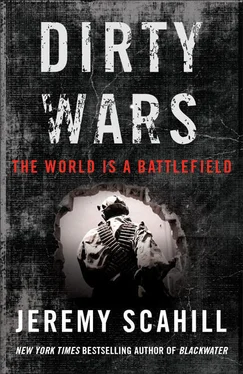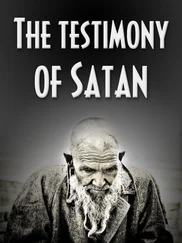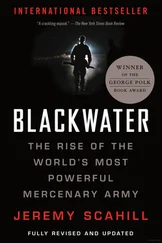During this time, the al Qaeda network in Yemen was in disarray. A year after the November 2002 drone strike, Harithi’s successor, Muhammad Hamdi al Ahdal, was jailed, as were scores of other suspected militants. Under pressure from the United States, Saleh arrested more than one hundred people and locked them up, ostensibly on suspicion of involvement with the USS Cole attack.
The period that followed, from 2003 to 2006, was notable only insofar as the Bush administration seemed to take almost all focus off Yemen and potential al Qaeda threats emanating from the country. “There was an interlude of a little over two years in which it appeared as though al-Qaeda had largely been defeated in Yemen,” recalled Princeton University professor Gregory Johnsen, widely considered a leading US expert on Yemen, in testimony before the Senate Foreign Relations Committee. “But instead of securing the win, both the US and Yemeni governments treated the victory as absolute, failing to realize that a defeated enemy is not a vanquished one. In effect, al-Qaeda was crossed off both countries’ list of priorities and replaced by other, seemingly more pressing concerns. While the threat from al-Qaeda was not necessarily forgotten in 2004 and 2005 it was mostly ignored.” Johnsen believed this “lapse of vigilance” was “largely responsible for the relative ease” that al Qaeda had when it rebuilt its infrastructure in Yemen in the period that followed. Another factor that ultimately worked in al Qaeda’s favor was Saleh’s imprisonment of hundreds of people on simple suspicion of being affiliated with al Qaeda—in some cases with little or no evidence—which effectively turned the prisons into radicalization factories. “These men were tossed in security prisons with other more experienced fighters who did much to radicalize their younger more impressionable fellow inmates in the shared cells,” Johnsen told the Senate. “This problem was largely overlooked at the time” and “would come back to haunt both Yemen and the US throughout multiple phases of the war against al-Qaeda.”
Policy makers in Washington seemed to lose interest in Yemen, but the US military, especially the Special Operations community, certainly did not. While Rumsfeld tapped most of the elite hunter-killer forces from JSOC for the high-value killing campaign in Iraq, Yemen remained on the radar of these very forces, whose stated mission was counterterrorism operations. Several Special Operations veterans from this period told me they were disillusioned by what they saw as a misdirection of their skills for operations in Iraq that could have been used to confront the more serious threat posed by al Qaeda elsewhere.
In mid-2003, in Yemen, the ground was being laid for a resurgence of al Qaeda, as President Saleh found himself fighting to put down a domestic insurrection. In 2004, the Houthi minority launched a military uprising in the north, spurring a military offensive by Saleh that resulted in the deaths of hundreds, including Hussein Badreddin al Houthi, the leader of the rebellion. His brother, Abdul-Malik al Houthi, eventually succeeded him and continued the fight against Saleh. In confronting the Houthis during the period known as “the six wars,” which spanned from 2004 to 2010, Saleh used both al Qaeda and Saudi forces, as well as his own US-trained-and-equipped Special Operations Forces. An al Qaeda spokesman, Ahmad Mansur, claimed the Yemeni government had solicited al Qaeda’s support in fighting the Houthis in return for “eas[ing] the persecution of our members.” This account was backed up by several former senior US intelligence and military officials.
Saleh also relied heavily on the Saudis in this effort. At one point, the Saudis were reportedly giving Yemen $10 million a month to fight the Houthis. For the Saudis, the situation in Yemen presented an array of challenges beyond the Houthi rebellion. Overall, the kingdom was Yemen’s biggest sponsor, giving Saleh’s government an estimated $2 billion a year in aid. To justify their wars against the Houthis to the United States, Saleh and the Saudis consistently used allegations of Iranian support for the Houthis and deliberately conflated them with al Qaeda.
While he worked various angles to try to bolster his own military and political objectives, and the CIA and JSOC entrenched deeper in Yemen from the US base nearby in Djibouti, Saleh used the US desire to take custody of Cole bombing suspects to leverage additional support. Despite repeated requests from the FBI and other US agencies and officials, Saleh refused to hand over the top suspects in the bombing, including Jamal al Badawi, whom the United States explicitly asked be extradited after he was indicted in 2003 in federal court in the United States. “The Yemeni constitution prohibits handing over any Yemeni,” Saleh told the New York Times.
Instead, Saleh brokered a scheme wherein most of the suspects would be prosecuted and sentenced in Yemen. In 2002, under pressure from Washington to do something, Saleh had created what he called a “dialogue council” to “confront” the jihadists on his soil through rehabilitation and reconciliation. “The Yemeni state felt an urgent need to act against radical Islamism,” observed terrorism researcher Ane Skov Birk. “This need arose from a perceived danger to the state partly from the militants themselves, and partly from the possibility of an American led war on Yemen if the state failed to act against these militants.” Hundreds of Yemenis were taken into custody as part of the program, and there were reports of torture and cruel treatment that amounted to “gross violations of the detainees’ rights.” Between 2002 and 2005, more than three hundred Yemenis were released. Several of the program’s “graduates” would go on to return to the struggle, fighting in Iraq or joining al Qaeda or other militant groups in Yemen, and the program was eventually discontinued in 2005. For seasoned observers of Yemen, Saleh’s game over the Cole suspects was akin to a hostage scheme aimed at wresting more money, training and military hardware from the United States. Handing them over to the United States would be a political disaster internally for Saleh and would take away his negotiating power with Washington.
“After the Cole, Saleh knew al Qaeda couldn’t be trusted, but he wouldn’t drop that card,” said the former top US counterterrorism official who worked extensively in Yemen during this period. He told me that once al Qaeda suspects ended up in jail, Saleh would eventually “release them through a fictional ‘rehabilitation’ program where they would swear on the Koran to renounce terrorism or through pardons or by simply allowing them to escape.” In 2003, ten of the leading Cole suspects escaped from prison, beginning a multiyear pattern of arrests, convictions, escapes and rearrests. “Al-Qaeda intends to cause just enough sporadic damage to persuade [Saleh’s] regime that it is best to curtail its efforts to destroy al-Qaeda and to allow the group to operate relatively freely in and from Yemen as long as no major attacks are staged in the country,” observed former senior CIA official Michael Scheuer. Saleh’s approach to alleged al Qaeda operatives, Scheuer asserted, “almost certainly equates to a license for the militants to do what they want, where they want, as long as it is not in Yemen.”
From 2003 to 2006, while Saleh’s government remained largely off the Bush administration’s radar, there was an occasional meeting to demand action on the Cole suspects. In 2004, James Pavitt, the CIA’s deputy director of operations, told the 9/11 Commission, “Our operations, in concert with our partners, are gaining ground against the core of al Qaeda,” adding: “Two and a half years ago we would have listed our top concerns: Yemen, Saudi Arabia, Southeast Asia,” but today, “almost every senior target is gone in Yemen, killed or captured.” In reality, a sleeping giant was just waking up.
Читать дальше












